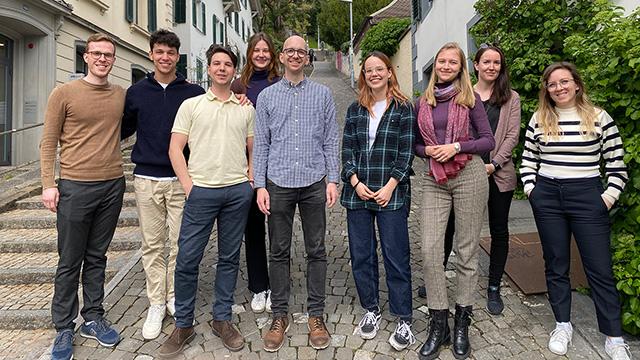University of Zurich Researchers Honored with Swiss 3R Awards
Every year, the Swiss 3R Competence Centre (3RCC) presents awards to researchers for outstanding contributions to the promotion of the 3R principle – the replacement, reduction and refinement of animal experiments. In addition to the scientific quality of the research work, the criteria for selecting the award winners are their impact on the 3Rs in science, regulation, industry and education. On 2 July 2024, the 3RCC presented the winners of the 3Rs Awards 2023. All award winners are researchers at the University of Zurich (UZH).
Improving transparency and reproducibility
The CHF 4,000 “3Rs Award” goes to the team of Benjamin Ineichen and his STRIDE Lab at the UZH Center for Reproducible Science. The group aims to improve transparency and reproducibility in animal research and contribute to more evidence-based animal testing by systematically reviewing existing studies. Their approach helps to limit unnecessary animal experiments and to replace, reduce and refine the use of animals in scientific studies.
Creating a comprehensive database for the neurosciences, improving drug development processes and supporting systematic reviews are among the laboratory’s major initiatives. Recently, Benjamin Ineichen published a study that systematically examines how well the results of animal experiments in biomedicine can be extrapolated to humans and how many therapies are ultimately approved for human medicine.
Administering substances without stressf
One of the CHF 2,500 Young 3R Investigator Awards goes to PhD student Viola Bugada from the Institute of Experimental Immunology at UZH. She was recognized for her method of refining the oral administration of drugs to rodents – known as micropipette-guided drug administration. Thanks to the MDA method, laboratory mice voluntarily take the drug tamoxifen, which is used to treat breast cancer before and after the menopause. The virtually stress-free administration using a micropipette is less stressful for the animals than conventional methods and improves their well-being. In addition, the dosage and timing of administration can be precisely controlled. Overall, the method leads to higher-quality and more reliable research results.
Organ-on-a-chip technology as an alternative
The second Young 3R Investigator Award goes to Duygu Yazici, a PhD student at the Swiss Institute of Allergy and Asthma Research, an associated institute of UZH. Yazici is being honored for the development of advanced laboratory models based on human stem cells and organ-on-a-chip technology. These biochips make it possible to simulate organ systems or entire organs in 3D cell cultures, a kind of artificial organ as an alternative to animal experiments. Yazici’s work focuses on toxicology – specifically: testing the health risks of environmental toxins – with the aim of reducing the reliance on animal testing.
3R Poster Prize
Junior researcher Frida Nilsson, a doctoral student in Pål Johansen’s group in the Department of Dermatology at the University Hospital Zurich, was one of three scientists who were able to present their research in a poster and a three-minute talk. In the following audience vote, Nilson was declared the winner and received the 3R Poster Prize for her work on the National Research Program 79 “Advancing 3R” project on the MDA method under the direction of Urs Meyer, Professor at the Institute of Veterinary Pharmacology and Toxicology at UZH.

